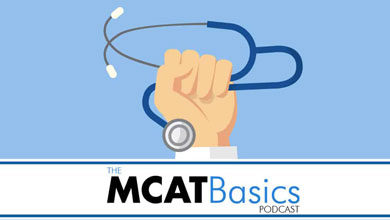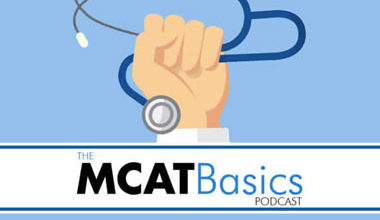Alex Starks joins Sam to talk about preparing for the MCAT. Alex is a very experienced tutor, having helped 400+ students in their test preparation. As a 99-percentile scorer, he shares his study tips and recommended resources for the MCAT.
- [01:25] Setting an MCAT test date
- [02:41] Creating an effective study plan
- [08:52] When should you start taking practice exams?
- [12:00] Practicing for the MCAT CARS portion
- [16:18] Alex’s recommended materials
- [18:53] When should you postpone or cancel your MCAT?
- [20:08] Debunking or Confirming Reddit/SDN MCAT advice
When should you set your MCAT test date?
Set an early test date. Having a time bound goal keeps you accountable to follow through on your study plan. When you are 3 weeks away from your test date, re-evaluate your progress. If you have not yet attained your goal score on an AAMC practice test, consider postponing your MCAT test date.
|| Suggested Read: One-on-one MCAT Tutoring
Stick to a study plan then answer practice MCAT exams
The first step in studying is building your knowledge base. Set realistic deadlines for when you should be done with reviewing content. Doing practice tests while getting through material is not an effective strategy. Instead, take practice exams after you have absorbed content. It will be a waste of time taking exams when you have no mastery of a subject. When practicing, try to simulate the same test conditions of the MCAT. Exams will reveal gaps in your knowledge. Take time to work on those weak areas more.
Alex’s recommends 4-5 months of part time studying or 2 months of full time studying for students with a weak knowledge base. But for students with a good understanding of a subject, 3 to 4 weeks of review should suffice.
If you’re looking for an audio course instead of an MCAT prep mobile app, check out our new MCAT Go. |
Additional advice to prepare for the MCAT
Third party practice exams are not representative of your future MCAT score. It’s a good idea to use these exams to build stamina and to get used to similar test conditions. Use the exams to practice decision making and time management. Don’t be too hard on yourself if you get a bad score on these. A related study tip: don’t take practice exams every few days. After an exam, review the questions you got wrong and understand the concepts behind it.
Organic chemistry is one of the lower yield topic on the MCAT. However, you shouldn’t completely ignore this portion because it is related to other general chemistry and biology.

